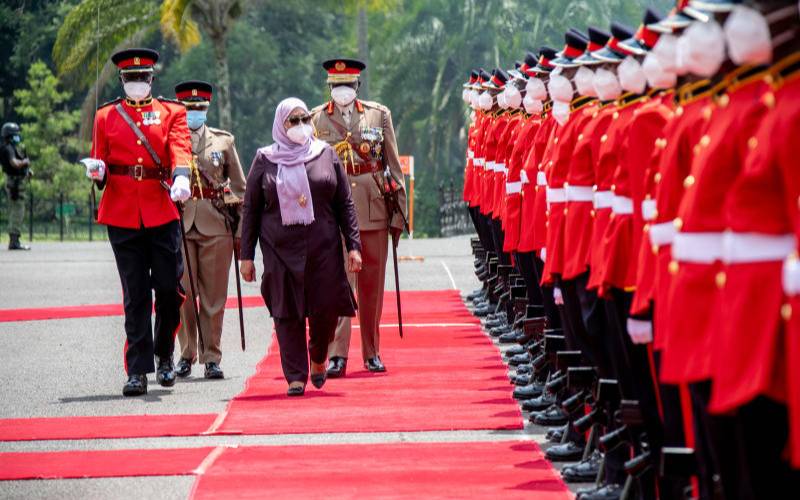×
The Standard e-Paper
Smart Minds Choose Us

Kenya and Tanzania yesterday turned over a new page when they committed to enhancing bilateral ties, signalling an end to a turbulent chapter marked with trade barriers and strife at their borders.
President Uhuru Kenyatta hosted Tanzania President Samia Suluhu, who is in the country for a two-day state visit at State House, Nairobi, where she inspected a guard of honour, complete with a 21 gun-salute.